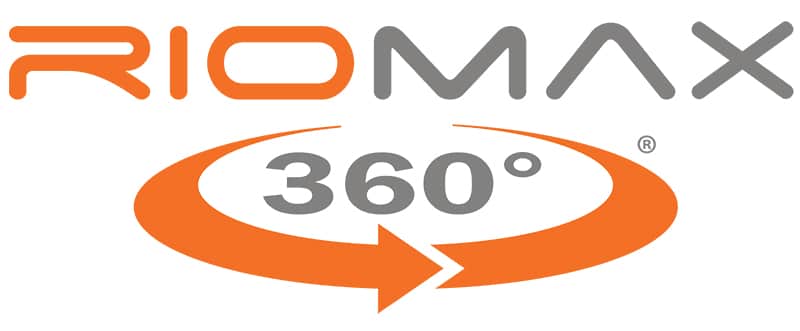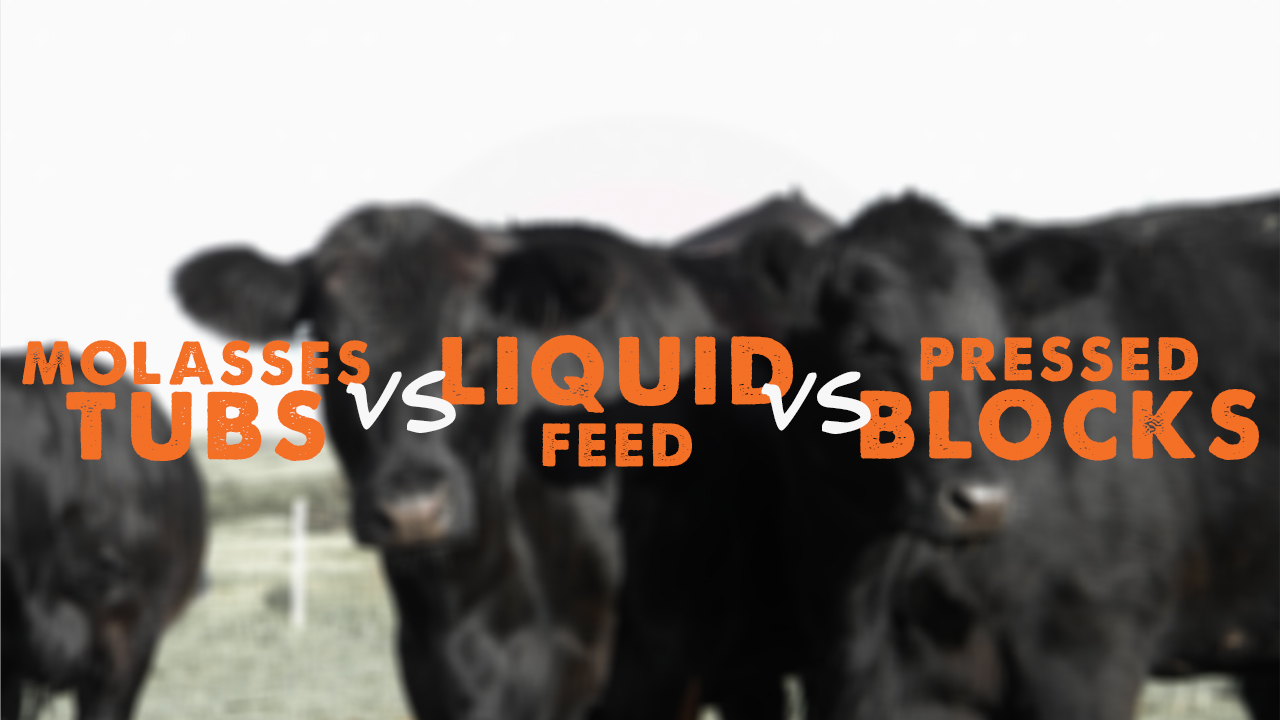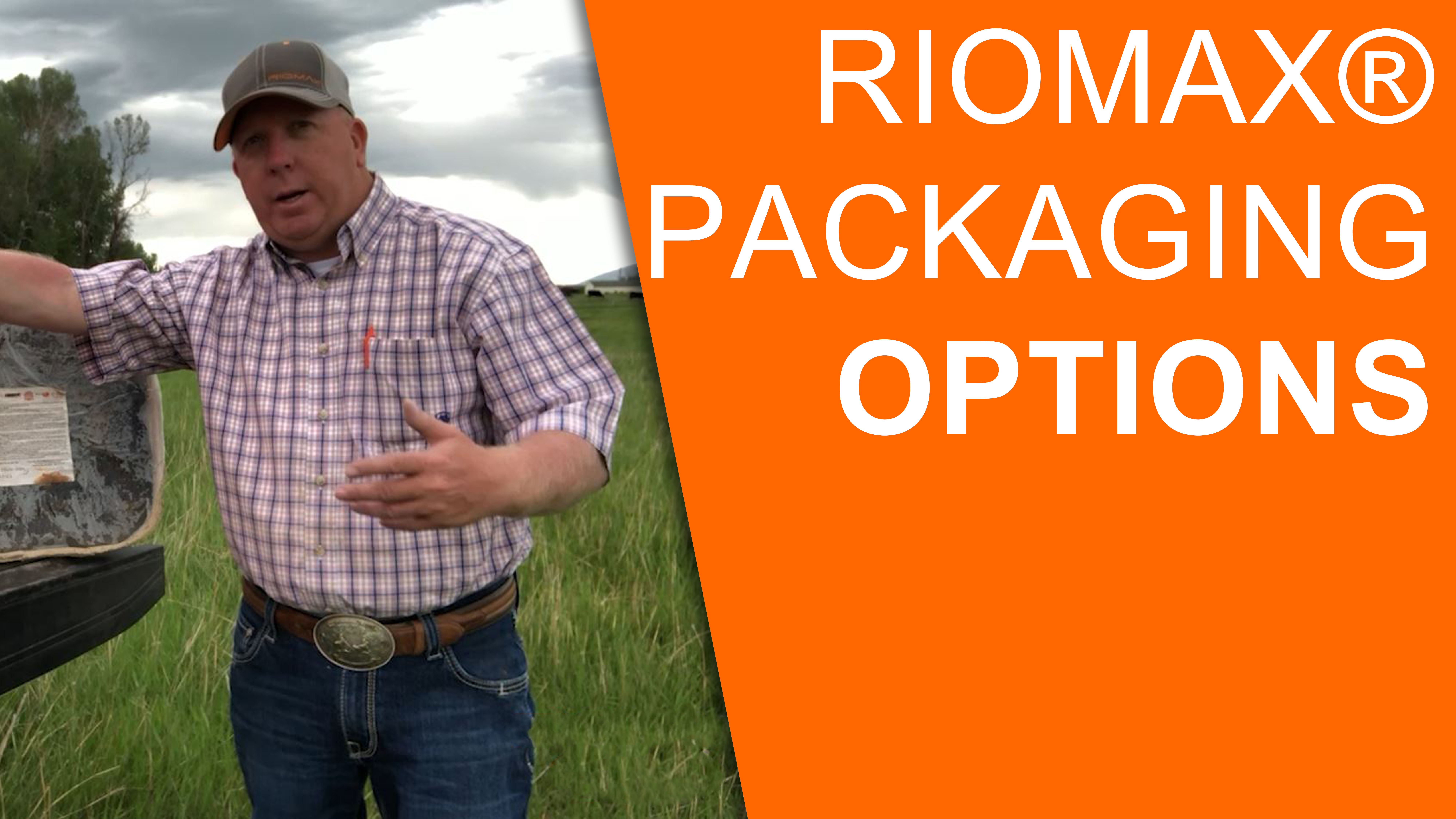Last updated on October 13th, 2023 at 09:37 am
Distillers pressed blocks...loose mineral...liquid feed...protein tubs...molasses tubs...salt blocks…
The list goes on.
Is it really that complicated of a decision? All you want is to get your cattle the nutrition they need. But the number of options can be overwhelming.
The three most common nutrition products in the industry are:
Pressed blocks, liquid feed, and cooked molasses lick tubs.
Each style of supplement does a similar job, but there are some key differences. These factors that differentiate the products make one option great for one rancher and a different option better for the next.
Here at Riomax®, we offer highly concentrated, cooked molasses-based tubs - but we realize that this option is not ideal for everyone. That’s why we’re going to give a completely unbiased comparison of the three above-mentioned cattle supplements, so you can decide which option makes the most sense for your operation. We’ll use the following measurables to compare:
- Ease Of Use
- Consumption
- Price
- Weather Durability
- Types & Options
Ease Of Use
Liquid
Liquid feed is often known for its convenience, and in today’s busy world, labor cost is almost as important as dollar cost. Liquid feed is a great option for operations that like the feed dealer to deliver and refill for them as necessary. This means you don’t have to handle the product at all. It’s a painless and easy way to get nutrients into the cattle.
Molasses Tubs
Tubs are also pretty easy to use because once you put them out, you don’t have to worry about it again for a week or two. With low consumption tubs, that time extends even further. The main thing that prevents tubs from being labeled as ‘easy to use’ is their bulky weight. A 250lb tub is not the easiest thing to move around, but more and more brands are offering smaller sizes like 125lb and even 60lb. Riomax also offers biodegradable tubs, which is a very convenient option for those who dislike picking up empties. Lastly, lick sleds are designed to make transportation easy. With a lick sled, you can easily pull two 125lb bio tubs with any 4-wheeler or UTV.
Distillers Pressed Blocks
Pressed blocks are convenient in theory; you put them out to the cows and leave them until they’re gone. But unfortunately, you’re going to find yourself having to replace them pretty frequently, as cows can go through them quickly. On large operations, this can add up to quite a bit of manual labor.
Consumption
Liquid
Liquid feed intake can fluctuate quite a bit, many times resulting in either over or under consumption. Overconsumption means you are going to be spending more than truly necessary, while under consumption means your cattle probably aren’t getting the nutrient value that is needed to make a difference. To keep an even consumption level, liquid feeding programs have to be closely monitored. Often, different locations and different mechanical systems are tested and tried in order to maintain consistent consumption rates. Some feeders/brands do have a method to control consumption, which is another thing you need to manage.
Because liquid feed is not highly concentrated, average consumption tends to stay around 2 pounds per head per day. For your cattle to be receiving the adequate amount of minerals they require, they actually need to be consuming at least that much. In other words, cattle need to eat a lot of liquid feed in order for it to make a difference.
Molasses Tubs
Consumption varies between tub brands, but a tub with an average concentration will generally have consumption somewhere between 1/2lb and 1lb per head per day. Higher consumption tubs can even reach up to 1.5 or 2lbs per head per day.
Highly concentrated cooked tubs, like Riomax®, will have quite different consumption rates, ranging from 1/8lb to 1/3lb per head per day. This also means that each tub will last longer, giving you more bang for your buck.
Distillers Pressed Blocks
Cows feed frequently on pressed blocks, leading to high consumption. Depending on the hardness of the block, consumption ranges from ½ lb all the way up to 4 lbs per head per day!
That’s not to say there is no way to control consumption on pressed blocks. SweetPro, for example, has a ‘Stage Of Growth’ program, where they offer multiple levels of block hardness. From there, you can feed different products based on varying conditions (weather, cow condition, forage quality). Be aware that this could get complicated; forages vary greatly, even within just one pasture!
Supplement Price
Liquid
Liquid feed’s upfront cost is sometimes thought of as high. After all, you have to buy the feeder/container, the supplement, as well as pay for any delivery fees that come along with it. Considering everything you get though, it isn’t outrageously priced. When it does seem expensive is when you calculate your cost per head per day. Because cows have to consume so much of it, you go through a lot of feed, and that adds up, day after day, week after week.
Molasses Tubs
Many people think “pricey” when they think lick tubs. If you use lick tubs full of sulfates and oxides, they are going to provide very little return on investment.
This does make them expensive to use because likely, you will see very little difference in your cattle.
There are some lick tubs, though, that contain only trace minerals - without any filler products. These are the tubs that can make a difference for your operation. While the upfront price might seem hefty, often, ranchers are able to offset that cost by the results they see.
It often comes down to the tub concentration. Low-concentration tubs will have a lower upfront cost, with fewer results. High-concentration tubs will have a higher upfront cost, especially if they contain the right kind of mineral (100% protected). This kind of high-quality digestion pack will give you the highest chance to top the charts in results like weight gain on calves, increased conception rates, better quality milk, stretched pastures, etc.
Distillers Pressed Blocks
Distiller grain-based blocks have a relatively cheap upfront price tag, and they may primarily seem like the most budget-friendly mineral program. Unfortunately, when you do the math and calculate your cost per head per day, pressed blocks become quite expensive.
Why does it change? These products generally have a high consumption rate, and cattle feed on them frequently. So although the cost per block may seem reasonable, there is a good chance you will go through a higher quantity of them because of how much the cattle consume.
Weather Durability
Liquid
Liquid feed has its pros and cons in different weather situations. It tends to do fine in the heat, as long as cattle are consuming it regularly. But if it sits for too long, it can potentially go out of condition.
There are more complications when cold weather hits; some liquid feeds become very thick, or can even freeze. This causes consumption to drop, and your cattle will most likely not receive the level nutrients they need. To avoid this problem, ingredients can be adjusted and added to make sure the product doesn’t freeze, which does require additional labor and maintenance.
In the case of wet weather, rain can mix with the liquid feed, watering it down. To make sure those needed minerals don’t get diluted, simply use a closed-top tank.

Molasses Tubs
There are a few drawbacks when it comes to weather durability in molasses tubs, but the majority of them can be combated easily. In rainy weather, tubs can get a bit of sitting water on top of the product. Eventually, though, the water will either seep into the tub, the cows will drink it up, or it can easily be tipped out - and you won’t lose any of that precious product.
The other potential issue is warm weather. This causes the molasses in the tub to soften, and tubs can get softer than they should. Fortunately, tubs can be cooked at a higher temperature, causing them to have a harder consistency, and hold their shape better at high temperatures.
Distillers Pressed Blocks
Probably the least weather-friendly of the three, pressed blocks struggle to hold up in any extreme weather conditions. They have a softer consistency and tend to crumble easily. In rain or other forms of precipitation, the blocks slowly erode or lose their shape. That means your precious mineral is slowly being wasted away.
Types & Options
Liquid
Liquid feed can be delivered to cows in a small variety of options. Depending on the operation, different options will suit different people. Liquid feed can be delivered in a trough, a tank, or a feed wheel. Keep in mind that whatever form is chosen, it will need to be refilled as the cows consume it. So in some landscapes - think of mountainous areas - liquid feed might not be the primary choice.
Molasses Tubs
In terms of packaging, molasses tubs traditionally come in very limited options, with not many styles/sizes to choose from.
But in recent years, many brands have started offering more variety in packaging, and now tubs are probably one of the most versatile, in terms of packaging options. Many brands offer 125lb or 250lb plastic barrels; Riomax® offers that as well as a 60lb biodegradable tub.
This variety of packaging options makes lick tubs a good option for operations that need versatility, because whether you feed in rough mountain pastures or wide-open prairies, there is an option for you.
Distillers Pressed Blocks
Feeding supplement in the form of a pressed block will give you the fewest packaging options. Typically, blocks can be found in sizes including 25lb, 50lb, and sometimes 100lb and 225lb blocks - but generally, the style is limited to a small square or round block.
What type of mineral supplement fits me best?
Liquid Feed Might Be A Good Option If…
- You feed in areas of rough forages
- You have a liquid feed dealer nearby and don’t mind delivery/refill fees
Molasses Lick Tubs Might Be A Good Option If…
- You calculate and monitor your cost per head per day
- You need a variety of packaging options to fit any situation
- You need help stretching your pastures/forages
Distillers Pressed Blocks Might Be A Good Option If…
- You need a cheap upfront cost
- You live in an area with mild weather
- You need a high consumption supplement as a forage replacement
If you feel like molasses mineral tubs could work for your operation…
We at Riomax® would love to help you build the nutritional foundation of your herd and set you up for profitability and sustainability. Our tubs are unique to others on the market, because they are very highly concentrated with low consumption.




